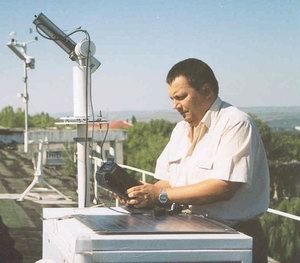Funding Opportunities in International Science Collaboration Research and Education
Cathy Campbell
CRDF Global has many funding and reviewer opportunities related to our work in international science and technology engagement, as well as the new gateway to international research collaboration, Newton’s List, created by CRDF Global in partnership with the National Science Foundation.
CRDF Global is an independent not-for-profit organization that supports international science and technology cooperation through grants, technical assistance and training. The organization was established in 1995 to support US cooperation with scientists and engineers in Russia, Ukraine, Kazakhstan and other countries of Eurasia. At that time, our immediate focus was to provide civilian research opportunities that would enable Eurasia’s world-class scientists to continue research in their home country. Beginning in 2003, CRDF Global’s work expanded to other regions. Today we are working in over 40 countries in Eurasia, the Middle East, Africa and Asia. CRDF Global's headquarters are in Arlington, Virginia and it has four overseas offices in Moscow, Kyiv, Almaty and Amman.
CRDF Global’s mission is to promote peace and prosperity through international science cooperation. We understand that advances in science and technology are critical to solving pressing challenges in health, agriculture, energy and climate. But no single country can solve all their challenges alone. In this increasingly globalized world, scientists, engineers and innovators must be able to connect, collaborate and create with counterparts around the world. This is where CRDF Global plays a critical role by catalyzing international partnerships in science, technology and innovation. We do that through a range of programs that seek to modernize science and technology capabilities; enable international research partnerships; and foster innovation and technology-based entrepreneurship.
Our work covers all natural sciences disciplines. For example, our Collaborative Research Grants programs with Eurasian countries awards funding to teams of US-Eurasian scientists working in chemistry, mathematics, ecology, physics, engineering, biology, and other domains. Approximately 23% of the 1,258 joint research projects funded under this program are in the physical sciences. Under another program, CRDF Global sponsored joint research competitions with four independent foundations that we established in Moldova, Armenia, Azerbaijan and Georgia. Sixty-seven of the 220 research projects supported through these initiatives were in physics.

Dr. Alexander A. Aculinin, a senior scientist with the Atmospheric Research Group (ARG) at the Institute of Applied Physics of the Academy of Science of Moldova Credit: Atmospheric Research Group http://www.arg.phys.asm.md/
One project involved a team led by Dr. Alexander A. Aculinin, a senior scientist with the Atmospheric Research Group (ARG) at the Institute of Applied Physics of the Academy of Science of Moldova. Dr. Aculinin partnered with a US team headed by Dr. Alexander Smirnov, a senior research scientist with the Goddard Earth Sciences and Technology Center at the University of Maryland, to establish Moldova’s first-ever solar radiation monitoring station. The station has been in operation since 2003, is installed on the roof of the Institute of Applied Physics and is equipped with state-of-the-art radiometric instrumentation, an automatic weather station and an ozonometer. All radiometric and ozone data acquired at the monitoring station are freely accessible to research centers and universities worldwide.
CRDF Global’s support of physics is not limited to Eurasia. Under our Iraq Science Fellowship Program (ISFP), CRDF Global, with funding from the US Department of State, supports three-six month fellowships for Iraqi scientists and engineers at US universities or businesses. Two of our current ISFP fellows have physics backgrounds. One has a background in physics of materials and serves as the chief physicist of an Iraq ministry. His fellowship has taken him to the University of California, San Diego, where he is working with different ceramic nano-composites to improve the strength and quality of dental implants. A second fellow, who directs a research center at an Iraqi university, specializes in surface science. He is currently on fellowship to the University of New Orleans doing research on synthesizing nano-wires to improve sensing technology for gaseous pollutants.
Opportunity for you
These examples provide just a sampling of the many projects CRDF Global has supported over its 18 year history. For more information about CRDF Global, please visit us at our website. If you are interested in applying for a grant or getting involved with CRDF Global as a reviewer, please visit the “Connect With Us” section of our website.
For information on other funding opportunities for international collaboration in research or education, please visit Newton’s List. This website is a tool for funders and grant seekers interested in collaborative international research and education. If you’re interested in international science and technology engagement, we hope to hear from you.
Cathy Campbell is President and CEO of CRDF Global.
Disclaimer - The articles and opinion pieces found in this issue of the APS Forum on International Physics Newsletter are not peer refereed and represent solely the views of the authors and not necessarily the views of the APS.
